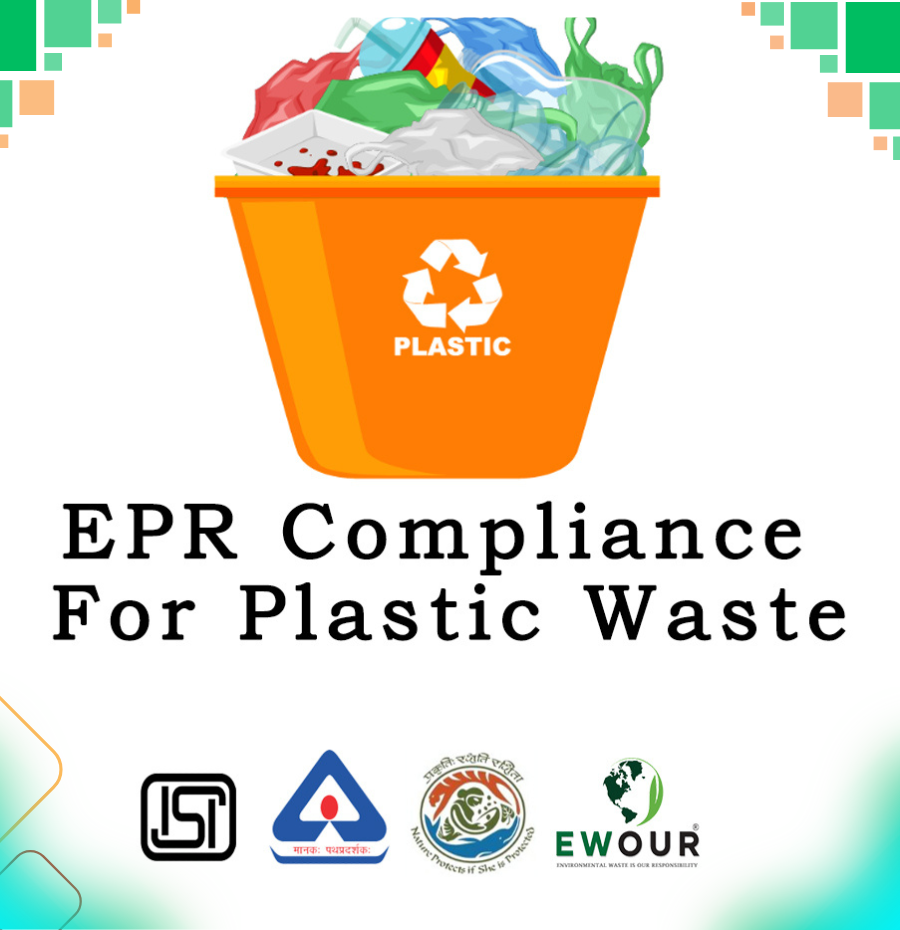Key Objectives of EPR Compliance
- To reduce plastic pollution and environmental damage.
- To encourage the collection, recycling, and reuse of plastic waste.
- To shift the responsibility of waste management from the government to product manufacturers.
- To support the development of a circular economy.
Who Needs EPR Compliance?
The following entities are required to comply with EPR norms:
- Producers: Companies manufacturing plastic packaging.
- Importers: Businesses importing plastic packaging or packaged goods.
- Brand Owners: Companies selling products under their brand name, whether or not they produce or import them.
- Plastic Waste Processors: Recyclers, waste-to-energy units, and co-processing facilities.
EPR covers four orders of plastic packaging
EPR covers four categories of plastic packaging:
- Category I: Rigid plastic packaging.
- Category II: Flexible plastic packaging.
- Category III: Multi-layered plastic packaging.
- Category IV: Compostable plastic packaging.
Benefits of EPR Compliance for Plastic Waste
Complying with the Extended Producer Responsibility (EPR) guidelines provides numerous benefits beyond just meeting regulatory requirements. It plays a crucial role in promoting environmental sustainability by ensuring responsible plastic waste management. EPR compliance also enhances a company’s brand value, demonstrating commitment to eco-friendly practices and improving stakeholder trust.
Environmental Sustainability: Reduced plastic pollution and better waste operation.
Legal Compliance: Avoidance of penalties and legal conduct under PWM Rules.
Commercial Responsibility: Enhances brand image and commercial sustainability credentials.
Indirect Frugality: Promotes exercise and recovery within the product cycle.
Obligatory Documents for EPR Compliance for Plastic Waste
For PIBOs:
- Company PAN, GST, and CIN
- Authorized signatory’s Aadhaar and PAN
- IEC Certificate (for importers)
- Cover letter and undertaking
- Details of plastic packaging used
- Valid consents from SPCB/PCC (where applicable)
For Plastic Waste Processors (PWPs):
- Proof of processing capacity
- Authorization and certifications from SPCB/PCC
- Business registration documents
- Details of clients and volume handled
Penalties for Non-Compliance
Failure to comply with EPR obligations may result in:
- Environmental Compensation charges by CPCB/SPCB
- Suspension or cancellation of EPR registration
- Ineligibility for further business operations in plastic packaging
- Legal proceedings as per the Environment Protection Act, 1986
EPR Credit System
Under the Extended Producer Responsibility (EPR) for plastic waste framework, Producers, Importers, and Brand Owners (PIBOs) who manage more plastic waste than their mandated annual targets are rewarded with EPR credits. These credits act as proof of surplus compliance and offer strategic advantages for businesses. They can be traded, sold, or carried forward, providing flexibility in fulfilling future EPR obligations.
- Sold to other PIBOs facing a shortfall
- Carried forward to the next year
- Traded only within the same plastic category (recycling, reuse, or end-of-life disposal)
All credit transactions must be transparently recorded and reported through the Central Pollution Control Board (CPCB) online portal. This ensures traceability, regulatory compliance, and integrity in the overall EPR credit system, thereby reinforcing responsible plastic waste management across the industry.
Validity & Renewal
- EPR registration is valid for 1 year and can be renewed for up to 3 years.
- Renewal must be applied 30 days before expiry.
EPR registration is essential to avoid legal penalties, business disruptions, and suspension of waste management operations. Maintaining an active registration ensures uninterrupted compliance, safeguards your brand’s credibility, and reinforces your commitment to long-term environmental sustainability.
Upcoming obligatory Labelling Conditions( Effective July 2025)
All plastic packaging must mention:
- Type of plastic used
- Recyclability information
- EPR registration number
- End-of-life disposal method
Ewour provides complete EPR Compliance For Plastic Waste management, handling everything from CPCB portal documentation to coordination with authorized recyclers and report submissions. We also assist with credit generation and trading. Our streamlined approach ensures full regulatory compliance, allowing your business to stay focused on growth and environmental responsibility.










